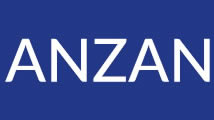Trainee Positions At St Vincent's Hospital, Melbourne
St Vincent's Hospital, Melbourne
Department of Medicine, St Vincent's Hospital, The University of Melbourne
PO Box 2900, Fitzroy 3065
VIC, 3065
Australia
Contact Details
Wendyl D'Souza
wendyl1@icloud.com
Phone : +61407948167
www :
Positions
Training Positions : Three
Elective Training Positions :
Fellowships :
Core Position Descriptions
Elective Position Descriptions
Hospital Information
St Vincent's Hospital Melbourne comprises approximately 350 beds. The Hospital is one of Melbourne's oldest and is located in the central city. Apart from inner and outer urban centres, it has a major rural referral base.
Department Beds :
The Neurology Department consists of 30 beds, four of which are dedicated video EEG monitoring beds and 13 Stroke beds. An additional two video EEG monitoring beds are shared with the Neurosurgery Department and is used chiefly for invasive monitoring.
Department Clinics
Regular clinics in general neurology and neuromuscular disease are held.In addition movement disorder clinics are held twice weekly, and there are regular neuroophthalmology clinics at the adjoining Eye & Ear Hospital attended by neurologists from the Department. Stroke clinicsDriving clinicsUrgent N/L clinicsFirst Seizure clinics
Department Specialty Clinics
Department Meetings
Weekly neurology meetings, neuroradiology meetings and neuropathology meetings occur at the Hospital. In addition there are weekly epilepsy meetings, as well as the routine hospital meetings including Grand Rounds and Division of Medicine Meetings
There are regular meetings throughout the year of the various specialty societies including epilepsy, movement disorders and stroke. Trainee is encouraged attend the annual EEG workshop in Sydney.
Department Staff
There are currently 14 neurologists on staff; two of these have full time Hospital positions. The rest are visiting medical officers with a variety of sessional allocations.
Junior Staff Positions In Neurology
There are three neurology registrars in total, including stroke registrar. There are two neurology residents.
Trainee Responsibilities
Selection Criteria
Philosophy Of Training
this Department combines strong clinical skills with extensive laboratory facilities on site. The major interest has been neuromuscular disease in the past, although for the last 10 years epilepsy has been a major emphasis of the Department. The movement disorder facilities are currently being expanded. The advanced trainee has a considerable degree of responsibility in the running of the Department and as well encouraged to take part in clinical research. Attendance at Hospital and national meetings is encouraged. Many trainees have gone on to pursue higher degrees in basic or clinical research within the Department
Neurology Training In State
Other Information

